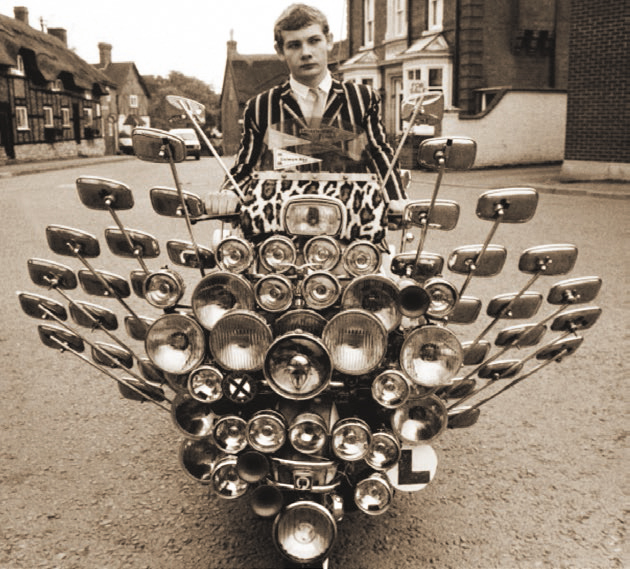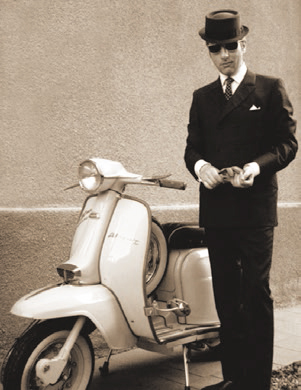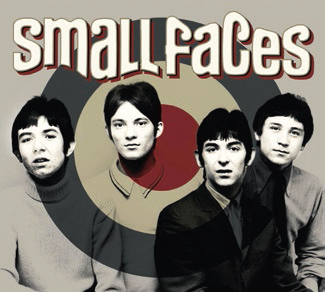Scooters are for Riding - Page 5
When Vespas Came to Carnaby Street
 |
From the start, in the aftermath of World War II, scootering has been an international, multi-cultural affair. American financial assistance to a destroyed Italian industrial infrastructure stimulated production of Vespa and Lambrettas, and it was an American military scooter that inspired their design.
No nation in the world took to them like India, which became home to a successor firm after Lambretta ceased production in Italy in 1972. "They're the heartbeat of India," East Bay scooter enthusiast Pelayo Llamas says.
There are scooter clubs throughout Asia and in much of Europe. There are Vespa clubs in Uganda.
Still, after Italy, no country has influenced the development of scooter culture more than Great Britain, where in the 1960s a group of young Londoners adopted the bikes as part of a 'mod' lifestyle that grew out of the Beatnik café culture.
Kids into mod—short for modern and the modern jazz many of them craved—dressed like teen dandies. The boys wore thin-lapelled or no-lapel suits with tapering pants, the girls often in bright colors and short dresses bought from Mary Quant's boutique on Carnaby Street, if they could afford it.
 |
Vespas and Lambrettas were the ideal ride, because with their engines encased in sleek metal, the mods' finery would remain unspoiled. The kids also loved the look of the scooters.
What did they listen to when they got off their bikes? American soul music, jazz, and the bands that grew up around the scene—the Small Faces, the Kinks, the Who.
Who were their antagonists? The motorcycle-driving, leather-wearing rockers, who were more rockabilly and Marlon Brando. When violence erupted between mods and rockers, it made international news.
And just like Vespas and Lambrettas, the mods have never gone away. The ska and reggae music resurgence of the late '70s and early '80s, when many of today's West Coast riders were growing up, was part of one such revival.
"I would say, depending who you hang out with, maybe a quarter to a third of scooter people are kind of into the mod thing," says Joe Barthlow, an Oregon rider who confesses to being part of the scene. He is also a DJ.
 |
"Right now it's kind of a light revival," he says.
"We were just at High Rollers in Vegas," he says of the vintage scooter rally. "Everything has music, the parties—a lot of live bands and DJs. It's all the British youth subculture, usually either the '60s, or the '80s [like] the Jam."
"It's the reason I was first exposed to scooters," says Janel Holiday, a self-defined "scooter girl" in San Francisco. "My older brother was totally mod in high school."
"I don't consider myself to be a mod," she says. "A lot of my friends are. But I was into [Jamaican] rock steady when I was 13, 14—the Skatalites, Desmond Dekker, Toots and Maytals, the Specials. It's not what defines me [now]."
Pelayo Llamas, who grew up in El Cerrito, remembers the '80s mod and ska revival, bands like the Uptones in Berkeley, but says, "I'm not part of that scene. I like that kind of dress to some degree. For someone to be a mod 45 years later is anachronistic, I would say."
Anachronistic? Sure. But how about riding vintage scooters?




